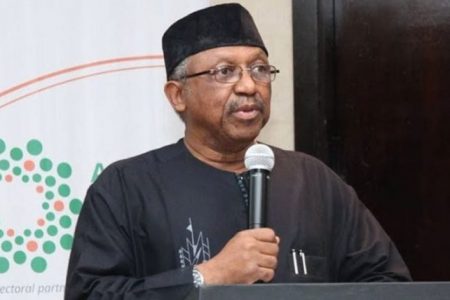The Minister of Health, Osagie Ehanire, says limited financing for the primary healthcare, shortage and mal-distribution of healthcare workers, dilapidated infrastructure and weak referral systems have significantly limited the advancement of PHC in the country.
He stated this in Abuja yesterday during the national health dialogue organised by the Centre for Journalism Innovation and Development and the Premium Times Newspapers, themed ‘Role of State and Non-state Actors in Primary Health Care Financing.’
He said National Health Account reports published over the past decade indicated that expenditure on primary healthcare had been sub-optimal, with significant spending on curative healthcare.
“The inadequacy in funding for the primary healthcare system has negatively impacted the delivery of services such as immunization and maternal and child health services,” he added.
- Encroachment of power lines delaying optimal transmission – FG
- We’ll replicate modern police stations across Nigeria – IGP
Ehanire, represented by Dr Ngozi Azodo of the ministry, said robust primary healthcare financing in Nigeria would require collaborative efforts of both state and non-state actors.
He said while state actors in government continue to play their roles to ensure that more public resources are available for the primary healthcare systems, a significant proportion of the progress with financing for primary health care is dependent on the role of non-state actors.
He said the private sector, civil society organizations, non-governmental organizations, the media, faith-based organizations, trade unions, professional organizations, academia, community groups and private citizens alike could contribute to financing primary healthcare in Nigeria.
WHO Representative in Nigeria, Walter Kazadi Mulombo, said global evidence had shown that the choice of health financing policies determines the achievement or otherwise of the Universal Health Coverage aspirations of countries.
Mulombo, represented by Dr Claudia Vivas Torrealba , Coordinator Strategic Health Security and Planning, said the National Health Account estimated that 16.6% of the current health expenditure was from government (federal, state, and LGA), 11.8% is from development partners while 3.6% is from insurance.
Executive Director, National Primary Healthcare Development Agency (NPHCDA), Faisal Shuaib, said strong political will, with a robust and sustained focus on primary health care, is vital to ensuring a transformational change in Nigeria’s health sector.


